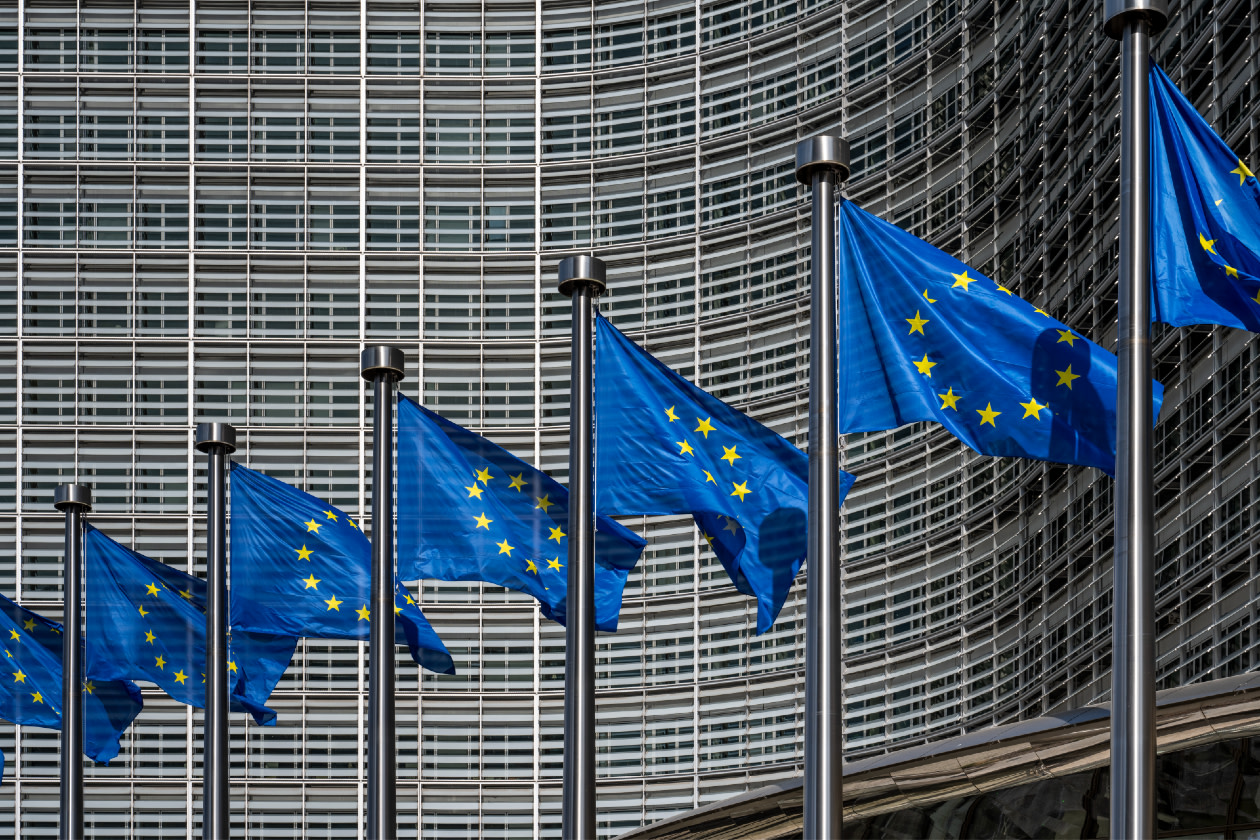US stock markets have been stealing the spotlight for years now.
But European stock markets have been attracting attention this year. Investor flows into European funds on the HL platform have reached £69.4mn so far in 2025, compared with net outflows of £207.mn in 2024.
This growing interest signals a shift in sentiment, especially as more investors are wary of the lofty valuations (a measure of how ‘expensive’ or ‘cheap’ a share price is) of US companies in particular.
Big investors are making changes to.
For example, New Zealand’s Super Fund – considered the world’s best-performing sovereign wealth fund – has recently increased investments in European shares while reducing its allocation to the US.
It’s a sign some global asset managers are losing confidence in the longer-term outlook for US shares.
This article isn’t personal advice. If you're not sure if a course of action is right for you, ask for financial advice. Remember, all investments can rise and fall in value, so you could get back less than you invest. Past performance also isn’t a guide to the future.
Do geopolitical tensions equal opportunity?
As the world’s geopolitical landscape changes, this could present opportunities for Europe.
Defence spending, for instance, is increasing rapidly across the continent, as governments respond to ongoing security concerns. That’s supporting growth in aerospace, defence, and industrial sectors.
Energy security is another key focus.
Following the 2022 energy crisis, the EU’s investing heavily in renewable energy, LNG infrastructure and power grid upgrades, aiming to reduce reliance on Russian gas and accelerate the green transition.
In fact, Europe now spends 10 times more money investing in clean energy than it does fossil fuels. This could benefit utilities and clean energy companies with strong infrastructure pipelines.
There’s also a growing emphasis on reducing reliance on overseas suppliers in industries like pharmaceuticals and semiconductors. This isn’t something that can happen overnight, but if successful it could ultimately help sectors tied to manufacturing and innovation.
Political uncertainty remains, but many of these shifts could pave the way to making European markets more attractive to investors over the longer term.
European stocks are good value
The good news for those considering an investment now is that European stocks trade at a discount to their US counterparts (this means their valuations are lower, suggesting their share prices could be yet to reflect their potential).
This valuation gap partly reflects lingering concerns around sluggish economic growth and political risks in Europe. Valuations in the US have also been pushed up as investor expectations for big tech firms remain elevated.
But risks in the US have been growing too, and if sentiment towards Europe continues to improve, then valuations and share prices could benefit. As always though, there are no guarantees.
Investment ideas for Europe
Here are three fund ideas for those seeking exposure to Europe, which each use a different approach to investing in the region.
Investing in these funds isn’t right for everyone. Investors should only invest if the fund’s objectives are aligned with their own, and there’s a specific need for the type of investment being made. Investors should understand the specific risks of a fund before they invest, and make sure any new investment forms part of a diversified portfolio.
For more details on each fund and its risks, use the links to their factsheets and key investor information.
BlackRock Continental European Income
This fund aims to provide investors with an attractive income alongside growth in their investment. The managers mainly invest in larger, more established European businesses, but have the flexibility to invest in higher-risk small and medium-sized businesses as well.
The managers also aim for the fund to be less volatile than others investing in Europe, and to provide some resilience during tough markets. Therefore, they consider how cash generative a business is, and how resilient they think it’ll be in a market downturn.
Some of the largest sectors in the fund currently include industrials, financials and utilities. It invests in a relatively small number of companies, currently 46, which means each one could have a big impact on performance, and the fund lends some of its investments to others in exchange for a fee in a process known as stock lending, both of which increase risk.
Barings Europe Select
This fund invests in an overlooked part of the European market in recent years – smaller companies.
Like the region more broadly, this could spell opportunity as European smaller companies also offer great value. If their potential is recognised by more investors, the valuation gap compared with other markets and larger companies could close and lead to share price growth. Smaller companies are higher risk though.
Nick Williams has managed this fund for over 20 years, which makes him one of the most experienced investors in the European sector.
He uses a GARP (Growth at a Reasonable Price) investment style. This means he invests in companies he believes can grow earnings steadily, but where the shares look undervalued based on the earnings potential.
Legal & General European Index
This fund aims to track the performance of the broader European stock market, as measured by the FTSE World Europe ex UK Index, rather than beat it. It means the fund offers broad exposure to larger European companies.
The fund is currently made up of 548 companies concentrated in sectors like financials, industrials, healthcare, consumer discretionary and technology.
An index tracker fund is one of the simplest ways to invest, so we think this fund could be a great, low-cost starting point for an investment portfolio aiming to deliver long-term growth.
Annual percentage growth
31/08/2020 to 31/08/2021 | 31/08/2021 to 31/08/2022 | 31/08/2022 to 31/08/2023 | 31/08/2023 to 31/08/2024 | 31/08/2024 to 31/08/2025 | |
|---|---|---|---|---|---|
BlackRock Continental European Income | 20.14 | -10.04 | 10.54 | 13.00 | 13.54 |
Legal & General European Index | 25.39 | -11.95 | 16.14 | 14.72 | 10.99 |
IA Europe Excluding UK | 27.13 | -14.42 | 13.46 | 13.58 | 8.67 |
Barings Europe Select | 29.19 | -25.09 | 6.54 | 7.73 | 5.91 |
IA European Smaller Companies | 40.84 | -26.03 | 6.33 | 11.78 | 11.51 |


